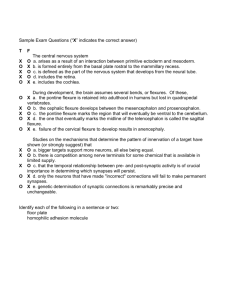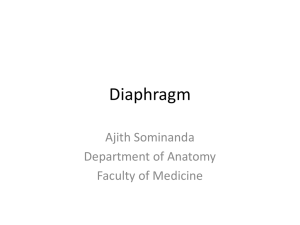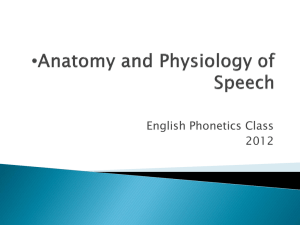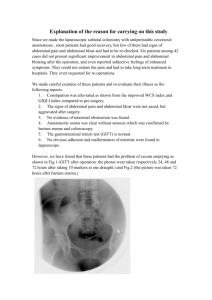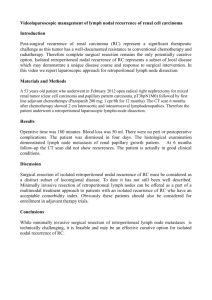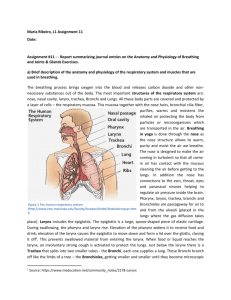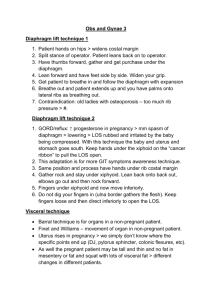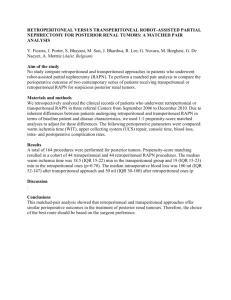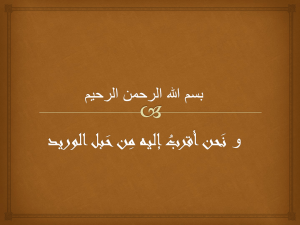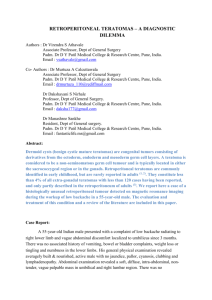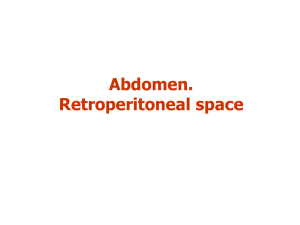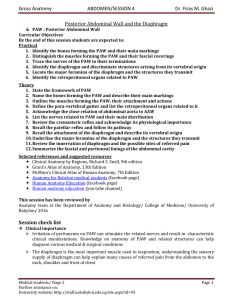Abdomen-Part 3 - kylethornton.org
advertisement
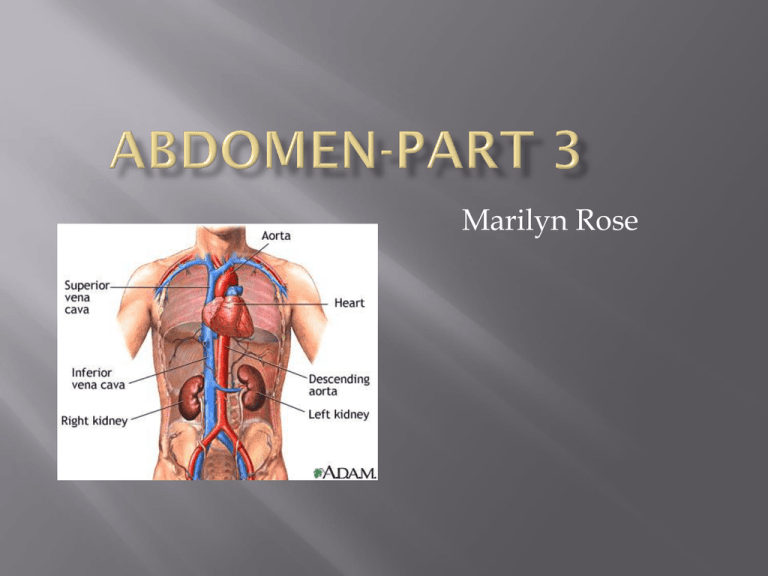
Marilyn Rose Kidneys, ureters, bladder, urethra Kidneys- retroperitoneal, bean-shaped Oblique orientation, paravertebral gutters along posterior abdominal wall One on each side of spine at the level of T12 – L4 Surrounded by perirenal fat, and Gerota’s fascia Composed of outer cortex- functional subunit- nephrons- filter urine inner renal medulla- pyramids, Loops of Henle Mass on CT recon of Horseshoe Kidney Retroperitoneal, paired, suprarenal, y shaped Rt adrenal- posterior to IVC, medial to Rt hepatic lobe, lateral to Rt crus of diaphragm. Lt adrenal- in “triangle” of the aorta, pancreatic tail, and Lt kidney- borders Lt crus of diaphragm Outer cortex- produce steroids Corticosteroids glucocorticoids, mineralocorticoids and androgens Inner medulla Hormones Epinephrine and norepinephrine- fight or flight Neuroblastoma Of Lt adrenal gland Adrenal Hemorrhage Neuroblastoma Stomach- food reservoir and early digestion Located under Lt dome of diaphragm Superior portion- joins esophagus at cardiac orifice (cardiac sphincter) Boder- lesser and greater curvature Inferior portion- pyloric antrum -> duodenum Anterior surface- contact with diaphragm, anterio abdominal wall and Lt lobe of liver Lining of stomach = rugae Gastric juices= mucus, hydrochloric acid, intrinsic factor and pepsinogen and lipase Very vascular organ CT scan of chest & upper abdomen (coronal section); herniation of stomach & splenic flexure of colon, along with collapse of lung and mediastinal shifting Intestines Small bowel between pylorus and ileocecal valve 6-7 meters in length Duodenum Pylorus- head of panc- retroperitoneal 4 portions jejunum– duodenojejunal flexure First- superior-duodenal bulb Second- descend- ampulla of Vater Third- horizontal- L3- ant to SVC, AO Fourth- ascending- Lt of AO at L2 meets with Jejunum ligament of Treitz- suspensory lig-around celiac axis Entry of small bowel into peritoneal cavity Lt upper abdomen/ umbilical region- absorption occurs- folds?? Ileum Longest portion, RL abdomen- terminate at ileocecal valve- CECUM Often this is the site of intussusception / inflammation and WHAT? Intussesseption hernia Inferior to stomach and liver Larger diameter, haustra and bands called taenia coli The appendix attaches to posteromedial surface of cecum Ascending Transverse Peritoneal, horizontal, toward spleen, splenic flexure Descending retroperitoneal, cecum to liver- hepatic flexure Retroperitoneal, Lt lat abd to sigmoid Sigmoid Chains along branches of arteries of intestine and AO Small, oblong, soft and difficult to visualize –unless ABNORMAL Enlarged= greater than 1 cm in short axis and 2 cm in long axis. Abdominoaortic nodal groups- surround AO/IVC Visceral –drain adjacent organs Lymph drains from abdominal cavity into lumbar trunk, and intestinal in to intestinal trunk and both trunks join the thoracic duct and then the venous system PTLD???? Diaphragm Quadratus lumborum Psoas Lateral surpaces of lumbar vertebrae Insert into greater trochanter of femur Rectus abdominis Lg portion of posterior abdominal wall Iliac crest- inferior 12th rib Anterior surface of abd/pelvis Linea alba Xiphoid- symphysis pubis- midline and interlacing
